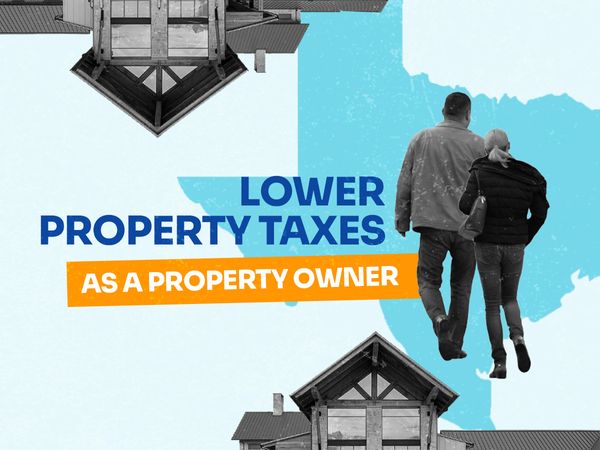Texas is one of the states that does not levy an individual income tax on its residents. Instead, Texas primarily relies on income generated through property taxes for its funding requirements. The taxes are levied by local governing bodies and service providers, including:
- school districts
- police departments
- fire departments
- streets and road authorities
The amount of property tax levied depends on each home’s appraisal value, with annual appraisals carried out systematically.
However, despite the high property taxes in Texas, the good news is that residents can receive relief in the form of multiple tax exemptions, which are available to both new and existing property owners. In 2022’s landmark judgment, the property tax exemption rule was modified to include all homeowners who purchased homes within the same year (previously, this exemption was provided only to homeowners after one year of purchase, beginning on January 1st of the next year following the purchase).
Who is Eligible for Exemptions?
While all homestead owners in Texas may qualify for tax exemptions, the homestead exemption is provided only for their principal residence. The homestead owner should be an individual in residence (beginning January 1 of the taxation year) at the property for which the exemption is being claimed. For example, if you own two homes in Texas, you can claim a homestead exemption on the home that is your primary residence and registered to you as an individual. Corporations or businesses cannot claim homestead tax exemptions.
How is a Homestead Defined?
A homestead is any separate structure, condominium, or manufactured home of up to 20 acres owned by residents of the structure who are in continuous residence. The structure can exist on owned or leased land.
What Are the Different Exemptions Provided?
There are different exemptions provided to homestead owners on the basis of the following:
- Property Location
- Homeowners' age
- County
- Other parameters
Let’s look at a more detailed list.
1. School District Exemptions – The school tax exemption is one of the most common exemptions provided to homestead owners in Texas. Under this exemption, homes that are located within a school district are eligible for an exemption of up to $40,000. The reduction in this amount is applicable on your appraised value. For example, if your homestead’s appraisal is $100,000, your final appraisal value will be $100,000 - $40,000, which amounts to $60,000.
2. County Tax Exemptions – These exemptions are provided by counties that levy special taxes for farm-to-market roads or flood control taxes. Under this exemption, homestead owners are eligible to get a further exemption of up to $3,000 on their property’s appraised value.
3. Homeowners Aged 65+, Disabled Persons & Veterans Exemption – Homeowners who are 65+ or disabled qualify for an additional exemption of $10,000 over and above the $40,000 total provided under the School District Exemption. However, in the case of an individual being both a senior and disabled, the resident is eligible for an exemption capped at $10,000 under either parameter, but not both. However, taxpayers aged 65 or older and/or who are disabled can be eligible for an additional exemption of at least $3,000, depending on the taxing unit. Furthermore, veterans with disabilities, their spouses, and survivors of military personnel killed on active duty can claim a veteran exemption, the amount of which is determined by a service-related disability percentage.
4. Optional Percentage Exemptions – Cities, counties, school districts, or special districts can grant a home value exemption up to 20%. The minimum exemption is $5,000, and the percentage is set by each taxing unit. This exemption complements other eligible home exemptions. To qualify, the taxing unit must decide on the percentage exemption before July 1 of the tax year.
2023 Property Tax Exemption Bill
The Texas Property Tax Reform and Relief Act of 2017 was introduced as a landmark bill that limited the maximum increase in taxes for a property. In 2023 August, when Texas saw another landmark hearing with a new property bill introduced; if passed, this will raise the exemptions granted to Texas homestead owners up to nearly $100,000. With the introduction of this new bill, Texas will see over $18 billion in property tax cuts, with special concern for senior citizens and small businesses.
How to File for an Exemption
While Texas citizens often struggle with high property tax rates, a thorough understanding of the tax exemption system can go a long way towards alleviating their fears and making property ownership feasible for all Texas residents. With additional measures being considered, Texas real estate is bound to invite even more investment from residents, and the state should witness a big boost in ownership.
With Bezit's comprehensive services, Texas residents can enjoy a smoother and more transparent property tax exemption and appeals process. Bezit is on a mission to make homeownership a joyful and fulfilling experience for every Texan, no matter what their dream home looks like.
Our expert team lets Texans rest assured that they are paying the correct amount in property taxes while receiving as many property tax homestead exemptions as they are entitled to. To find out more and start saving on your tax bill, visit Bezit.co today!

